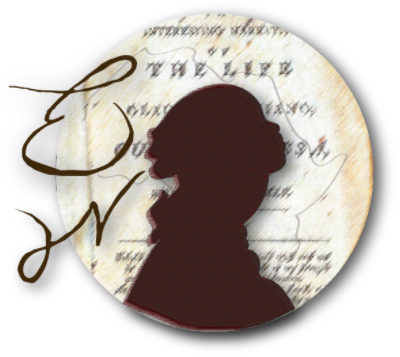Introducing Equiano's World
This project on Gustavus Vassa (Olaudah Equiano) focuses on the movement to abolish the trans-Atlantic slave trade and ultimately to emancipate the Africans and their descendants who had been enslaved. The subject of the project is the life story of Olaudah Equiano, the enslaved Igbo boy who was later known by the name given to him as a slave, Gustavus Vassa. He identified himself as African, sometimes as Ethiopian and ethnically as "Egbo," that is Igbo. The Interesting Narrative of Olaudah Equiano or Gustavus Vassa, the African, as Published by Himself, first appeared in March 1789. The release of nine editions in Britain and one in New York were influential in the abolition of the British slave trade, which was implemented in 1807. Because of the book's literary merit and its political significance it has remained in print in several popular editions which are currently widely read in English literature and Black Studies courses at universities in North America, Britain and Africa.
His contribution is highlighted in hundreds of articles and books devoted to an interpretation of his impact, which has been organized on this website. The story of this most interesting African and black Briton is sometimes labeled the classic slave narrative, written in the richness of eighteenth-century literature, has subsequently shaped a whole genre of literature identified as "slave narratives." Considering Olaudah Equiano did not know any English until he was eleven or twelve, whereupon he became known as Gustavus Vassa, this extraordinary recognition confirms his historical importance and moral influence. In the early 1790s, the heady days influenced by Revolutionary France on those interested in Parliamentary reform, the abolition of the slave trade, and the ending of slavery. Vassa was arguably the most influential Black in London at a time when the Black community numbered perhaps 20,000, making London one of the largest “African” cities, if not the largest, in the world at the time.
There is a considerable body of information presented here, much of it originally published in the various editions of The Interesting Narrative. Moreover, there is extensive scholarly analysis of different aspects of Vassa/Equiano’s significance and his place in the period in which he lived. The Equiano's World project builds on that knowledge. Considerable historical work remains to be undertaken, particularly with regard to the relationship of Vassa to the Black poor of London, his friendship with radical leader, Thomas Hardy, who was tried for treason in 1794, his marriage to a white woman, Suzannah Cullen, his commercial activities, his observations in the Caribbean, his involvement in the Mosquito Shore venture of Dr. Charles Irving, and his fascination with the Muslim world of the Ottoman Empire. The papers of the leading abolitionists, intellectuals and political figures of the late eighteenth century and those who subscribed to the various editions of The Interesting Narrative reveal connections into British society that are astonishing in their range and depth. The research being conducted on places and individuals that were important in Vassa’s life lends itself to dissemination of new knowledge via the internet.
This website is divided into different sections that establish the context in which Vassa lived, explore the places where he traveled, and the people whom he knew. There is also a section that raises questions surrounding Vassa's life, including where he was born to his views on race and slavery, and hosts a forum for discussion and queries. Studying Equiano provides access to primary documents, published scholarly analysis and web links relevant to the times and places of Vassa's life. Taken together, Equiano's World is an adventure into the history of abolition, accessible to scholars, students and the interested public.
Read More

Gustavus Vassa frontispiece, painted by William Denton and engraved by Daniel Orme, The Interesting Narrative (1789).












